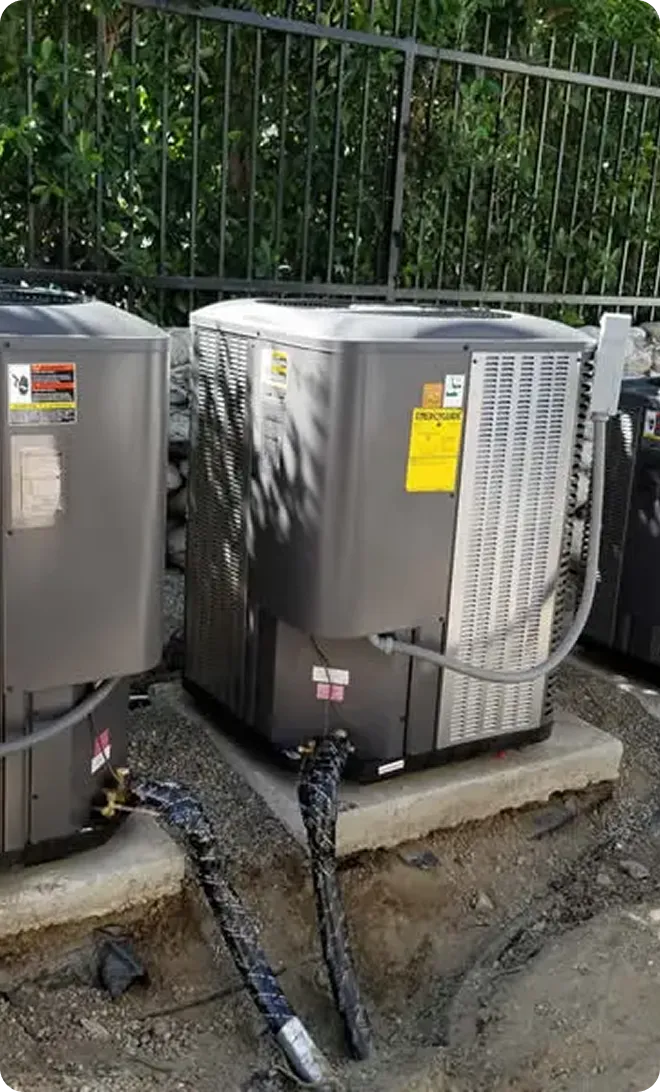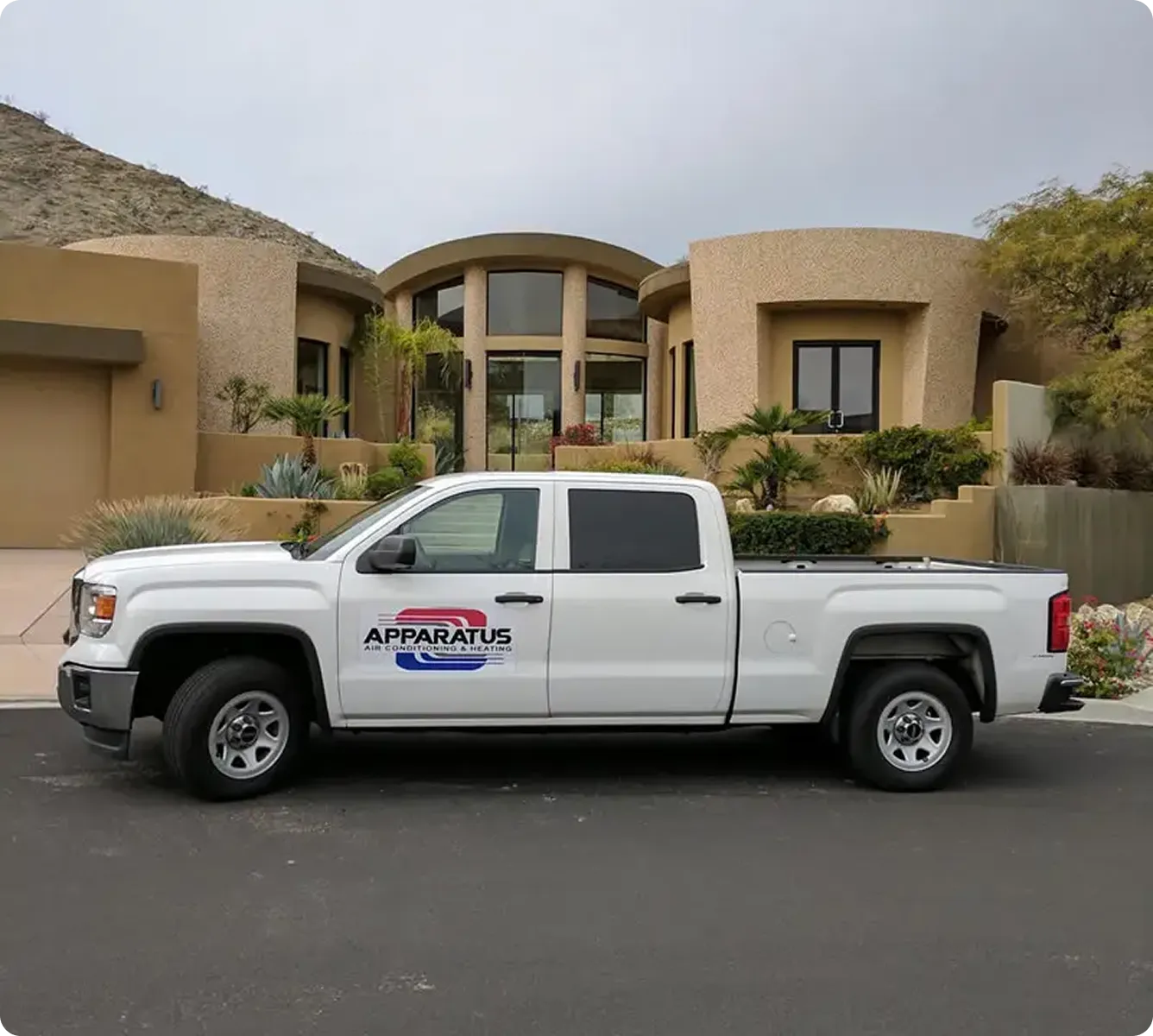
Water Heater Tune-Up in Bermuda Dunes, CA
Water heater tune ups in Bermuda Dunes, CA provide preventative maintenance to maximize efficiency, extend equipment life, and prevent mid-season failures in desert conditions. The service includes flushing sediments, inspecting burners, testing safety devices, and adjusting controls to optimize performance, reliability, and energy use. Technicians diagnose common issues such as sediment noise, inadequate hot water, leaks, and burner or element faults, then offer tailored repair and maintenance recommendations with schedule guidance for annual or more frequent service.
-min.webp)
Water Heater Tune Up in Bermuda Dunes, CA
Keeping your water heater running efficiently in Bermuda Dunes matters more than in many other places. Desert temperatures, mineral-heavy groundwater, and seasonal occupancy patterns increase wear on tanks, burners, and controls. A professional water heater tune up focuses on flushing tanks, inspecting heating components, testing safety devices, and adjusting controls so your system delivers reliable hot water, uses less energy, and lasts longer.
Why a tune up matters for Bermuda Dunes homes
- Desert dust and wind can accelerate burner and vent clogging on gas units, reducing combustion efficiency.
- Many properties in the Coachella Valley use well or municipal water with higher mineral content, which increases sediment buildup in tanks. Sediment causes noisy operation, reduced capacity, and higher energy use.
- Seasonal fluctuations in occupancy — vacation homes or rental properties — place uneven demand on systems and make preventative maintenance essential to avoid mid-stay failures.
- Regular tune ups help maintain manufacturer warranties and reduce the chance of emergency replacements during extreme heat.
Common water heater problems in Bermuda Dunes
- Noisy tank or popping sounds from sediment buildup.
- Short supply of hot water despite normal thermostat settings.
- Rusty or discolored water indicating corrosion or failing components.
- Pilot light outages or inefficient burners on gas units due to dust and clogged orifices.
- Leaks at valves, tank fittings, or from corrosion of the tank body.
- Tripped breakers or faulty heating elements on electric units.
What a comprehensive tune up includes
A professional tune up goes beyond a quick look and covers all critical areas to optimize performance and safety.
- Visual inspection
- Check tank body, connections, venting, and surrounding area for leaks, corrosion, and clearance issues.
- Inspect for signs of external damage from heat, pests, or exposure to blowing sand and dust.
- Flush and remove sediment
- Drain and flush the tank to remove mineral deposits that reduce capacity and insulate heating surfaces.
- For heavily silted tanks, perform multiple flushes or recommend more frequent maintenance.
- Burner and heating element service
- Clean gas burners and pilot assemblies; inspect and test ignition components and thermocouples.
- Test electric heating elements for proper resistance and replace if they are failing.
- Anode rod inspection and replacement
- Inspect sacrificial anode rod for corrosion; replace when depleted to protect the tank from internal rust.
- Recommend replacement frequency based on water chemistry and rod condition.
- Valve and control checks
- Test temperature and pressure relief valve for correct operation.
- Inspect drain valves, shutoff valves, mixing valves, and thermostats for function and safety.
- Adjust thermostat settings for safe, efficient operation and verify temperature output.
- Combustion and venting safety (gas units)
- Check combustion efficiency, flue integrity, and vent clearances to ensure safe exhaust and reduce carbon monoxide risk.
- Clean flue passages if buildup or obstruction is detected.
- Electrical and safety checks (electric units)
- Tighten electrical connections, inspect breakers, and verify element wiring to reduce risk of failures or electrical hazards.
- Leak and anomaly detection
- Inspect fittings, supply lines, and nearby piping for early signs of leaks or weakness that can lead to water damage.
- Maintenance recommendations
- Provide guidance on frequency of flushing, anode rod replacement, and other preventive steps tailored to your home and water quality.
How we diagnose problems during a tune up
A tune up includes a methodical diagnostic sequence so issues are caught before they fail:
- Confirm operating history and any recent symptoms you noticed.
- Measure incoming and delivered water temperatures to assess heat transfer and thermostat accuracy.
- Evaluate sediment level and test for reduced volume or stratification.
- Inspect combustion air supply, burner flame quality, and flue drafts on gas models.
- Test electrical components for continuity and insulation resistance on electric models.
- Perform safety device checks including the TPR valve and any required relief systems.
This process reveals both immediate repairs and longer-term service needs, helping prioritize work that prevents emergency breakdowns.
Repair and solution options explained
- Flushing: Removes sediment to restore tank volume and improve heat transfer. Often immediately reduces noise and improves recovery time.
- Anode rod replacement: Extends tank life by years when performed before heavy corrosion sets in. Frequency depends on water chemistry but is commonly every 2 to 4 years in mineral-rich areas.
- Burner cleaning or heating element replacement: Restores efficiency and prevents incomplete combustion or overheating.
- Valve repair or replacement: Faulty TPR or drain valves are common causes of leaks and are inexpensive to correct during tune up.
- Thermostat recalibration or replacement: Ensures reliable temperature control and prevents overheating or inadequate heating.
- Vent and flue servicing: Critical in desert homes where dust can reduce draft and combustion efficiency.
Recommended tune up frequency for Bermuda Dunes
- Standard recommendation: yearly tune up for both gas and electric water heaters. Annual service is especially important here due to local water and climate conditions.
- More frequent service (every 6 months) may be advised for rental properties, high mineral content water, or units that show early signs of sediment or corrosion.
- Replace anode rods proactively based on inspection; in hard water areas this can be every 1 to 3 years.
Benefits of timely tune ups
- Improved energy efficiency and lower monthly operating cost.
- Increased hot water reliability during peak demand, reducing inconvenient outages.
- Extended equipment life and delayed replacement costs.
- Reduced risk of leaks and water damage to your home.
- Safer operation through verified combustion and pressure relief systems.
- Clear documentation of maintenance that supports warranty claims and resale value.
Final considerations for Bermuda Dunes homeowners
In the Coachella Valley, maintenance prevents the two most common drivers of premature water heater failure: sediment accumulation and environmental exposure. Regular tune ups tailored to local water chemistry and desert conditions keep your system running quietly and efficiently and minimize the chance of an emergency repair during peak season. Scheduling routine inspections and maintaining an anode replacement plan are small investments that produce measurable savings and peace of mind over the life of your water heater.

hear what our satisfied
clients have to say









.webp)